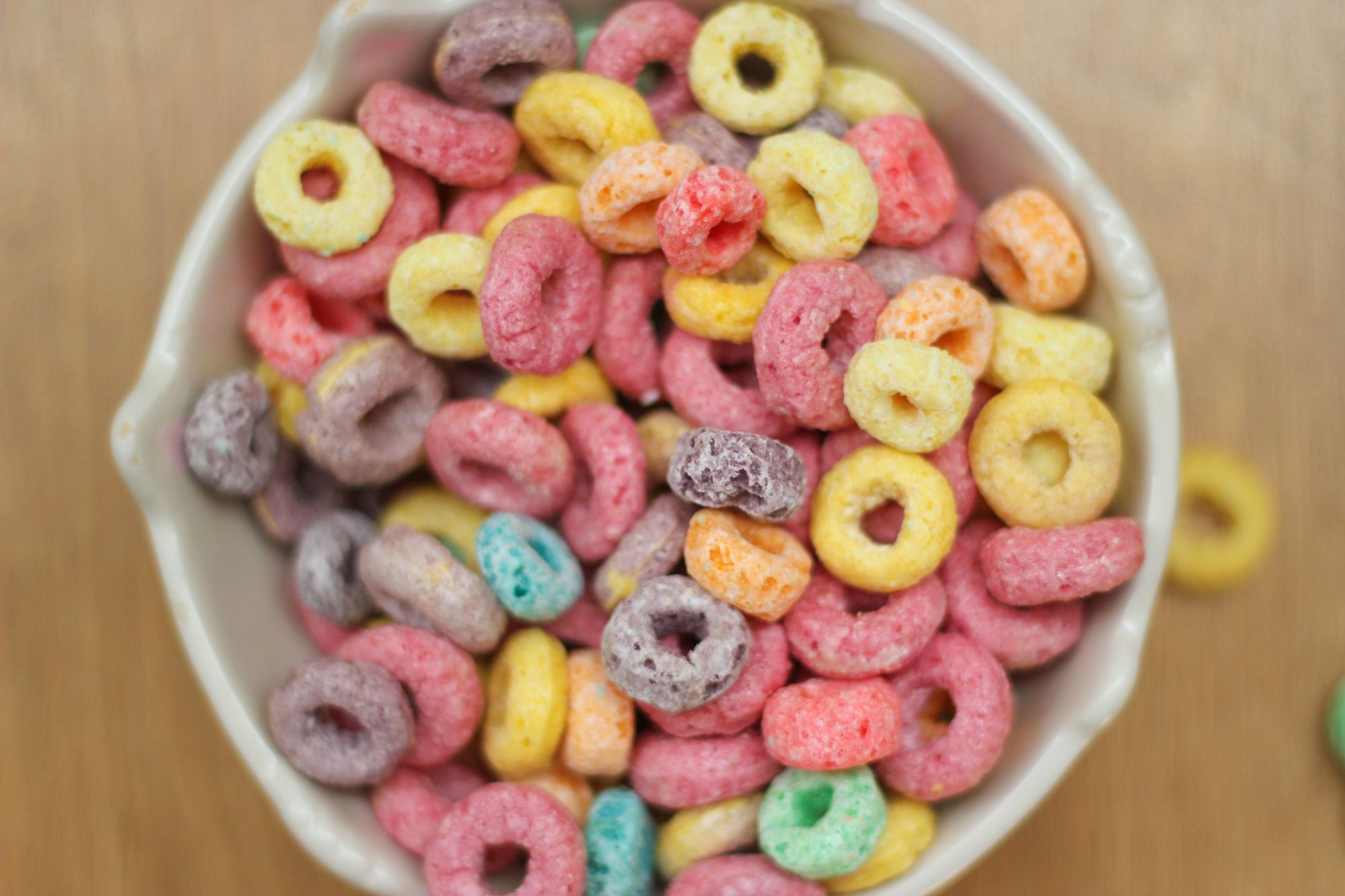Feeling mentally hazy, experiencing memory lapses, and struggling to concentrate are commonly referred to as "brain fog." This condition can arise from various factors such as stress, grief, perimenopause (for females), and exhaustion. What's less commonly recognized is that your dietary choices may also play a role in causing brain fog.
"While 'brain fog' is a colloquial term used to describe a cluster of symptoms affecting neurocognition, it's essential to acknowledge that the scientific understanding of this concept is continually evolving," notes Liz Shaw, MS, RDN, CPT, a Registered Dietitian and author. "However, based on our knowledge of general physiology, we understand that foods capable of causing inflammation in the body can potentially trigger a similar inflammatory response in the brain, leading to sensations of tiredness, sleep disturbances, and more."
She further explains, "These foods typically lack essential antioxidants and healthy fats, such as omega-3s, and tend to be high in detrimental trans fats, added sugars, and refined starches."
If you're committed to adopting an eating regimen that can potentially reduce the risk of brain fog, a well-balanced diet that's rich in vital nutrients and antioxidants can significantly support brain health and cognitive function. Incorporating foods abundant in omega-3 fatty acids like fatty fish, flaxseeds, and walnuts can be particularly advantageous for mental clarity. Likewise, fruits and vegetables brimming with antioxidants serve as protective shields for the brain against oxidative stress, a contributing factor to brain fog. Adequate hydration is also crucial, as insufficient water intake can lead to cognitive challenges.
Conversely, if you're concerned about brain fog, there are certain foods you might want to restrict or exclude from your diet. Here are 10 foods that could potentially trigger brain fog, and moderating their consumption may help maintain mental sharpness. However, if you're experiencing persistent brain fog, it's advisable to consult your healthcare provider before making any dietary adjustments to rule out underlying issues unrelated to your diet.
1) Alcohol

Alcohol plays a significant role in causing brain fog due to its impact on both hydration levels and the central nervous system," Mitri explained. "Not only can you experience cognitive haziness while consuming alcohol, but its effects can linger for several days afterward."
If you find that alcohol triggers brain fog for you, it might be advisable to refrain from drinking and opt for a non-alcoholic mocktail instead, Mitri advised. She also added, "You can potentially mitigate the brain fog induced by alcohol by ensuring adequate hydration and consuming electrolytes before or after drinking. This is because alcohol consumption can lead to dehydration, which in turn impairs cognitive function.
2) Candy

Candies serve as a prime illustration of ultra-processed foods that have the potential to notably trigger brain fog. They are frequently laden with substantial quantities of sugar, capable of causing rapid surges in blood sugar levels. Subsequently, these spikes may be succeeded by a sharp drop in blood sugar, resulting in sensations of fatigue, distraction, and mental haziness.
3) Fried Food

Fried foods can also be a contributor to brain fog. They tend to be rich in unhealthy fats and salt while lacking essential nutrients. Consistent consumption of fried foods can promote heightened inflammation within the body, which is a contributing factor to brain fog.
4) Refined Carbohydrates

Refined carbohydrates, often referred to as processed carbohydrates, are grain-based products that have undergone significant modifications from their natural state. This alteration process frequently involves the removal of the bran and germ, which are the most nutrient-rich components, leaving behind only the starchy endosperm. Notable examples of refined carbohydrates encompass items like white bread and white rice.
Refined grains can also be a contributing factor to brain fog. Similar to refined sugars, these grain products have been stripped of their most nutritious elements, resulting in an end product that, unlike whole grains, causes rapid fluctuations in blood sugar levels. In response to these fluctuations, the body releases hormones, which can lead to symptoms commonly associated with brain fog, including confusion, forgetfulness, and difficulty maintaining focus.
5) Caffeinated Drinks

Caffeine, a substance found in commonly consumed beverages like coffee and tea, can also play a role in causing brain fog. Paradoxically, while modest caffeine intake can boost alertness and focus, excessive consumption frequently leads to the opposite outcome. This is primarily attributed to dehydration and excessive stimulation of the nervous system. Overindulgence in caffeine can trigger a "rebound effect," resulting in sensations of fatigue, headaches, and brain fog as the initial stimulating effects subside.
6) Ultra-Processed Foods

Ultra-processed foods are food items that have undergone multiple stages of processing and contain numerous added ingredients. These products typically have elevated levels of sugars, unhealthy fats, sodium, and are frequently supplemented with artificial preservatives, colorings, and flavorings.
Melissa Mitri, MS, RD, a Registered Dietitian, Nutrition Writer, and Owner of Melissa Mitri Nutrition, explains that the consumption of ultra-processed foods has been linked to brain fog. This category encompasses items like breakfast cereals, packaged breads, and bakery goods such as muffins and donuts, which often feature refined grains, added sugars, and unhealthy fats.
"Although the available research is limited, there has been an observed connection between the consumption of ultra-processed foods and cognitive decline. Moreover, we are aware that increased intake of these foods has adverse health effects, making it advisable to consume them in moderation.
7) Food Additives

Food additives are substances introduced into food for various purposes, such as prolonging shelf life or enhancing color and flavor," explained Mitri.
Additionally, she noted that some individuals have reported experiencing "brain fog" symptoms after consuming certain well-known food additives, including monosodium glutamate (MSG) and artificial sweeteners like aspartame.
The scientific evidence regarding the connection between food additives and brain fog appears to be largely anecdotal. However, if you notice that you experience mental haziness after consuming specific food additives, Mitri recommends considering a reduction in their consumption.
8) Hotdogs

Hot dogs might also play a role in causing brain fog. These food items frequently come with high sodium content, nitrates, and various preservatives, which have the potential to induce inflammation within the body, consequently leading to brain fog symptoms. Furthermore, these meat products often carry elevated levels of unhealthy fats and tend to lack essential nutrients.
9) Regular Soda

Soda, especially those with high sugar content, can also be a factor in the development of brain fog. The substantial sugar levels found in many sodas can trigger a swift rise in blood sugar followed by a subsequent crash, resulting in sensations of lethargy commonly linked to brain fog. To reduce the likelihood of experiencing brain fog and foster overall brain health, it is advisable to restrict soda consumption and opt for healthier beverage alternatives like water, herbal tea, or 100% fruit juices.
10) Gluten

The connection between consuming gluten and experiencing brain fog is a matter of significant interest, particularly for individuals with sensitivities or intolerances to this protein present in wheat, barley, and rye. In individuals with conditions like Celiac disease or non-celiac gluten sensitivity, gluten can trigger an inflammatory reaction within the gut. This inflammation can then lead to systemic inflammation affecting various bodily systems, including the brain. This inflammation, combined with issues related to nutrient absorption, can result in a state of cognitive impairment often referred to as "brain fog." Symptoms may encompass difficulties with concentration, forgetfulness, and a lack of mental clarity. While ongoing research continues to explore this topic, anecdotal evidence suggests a connection between gluten consumption and brain fog in sensitive individuals.

